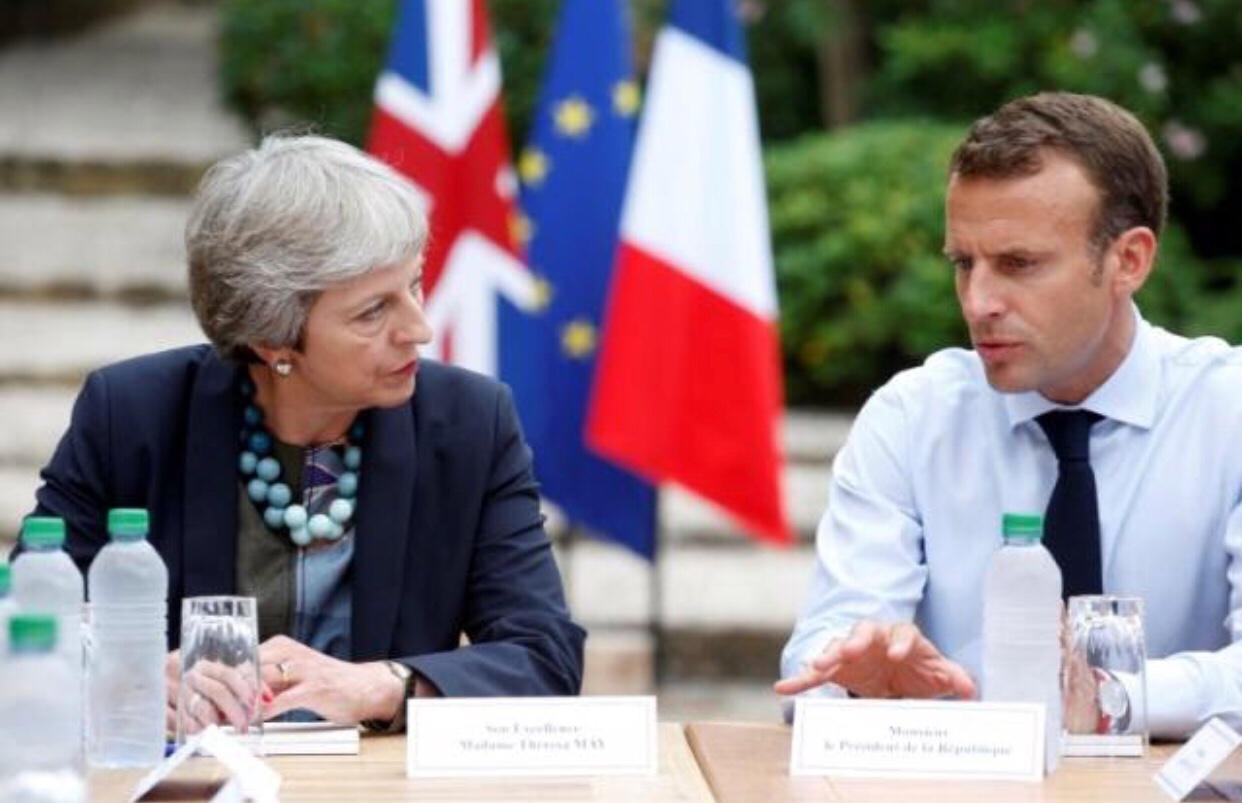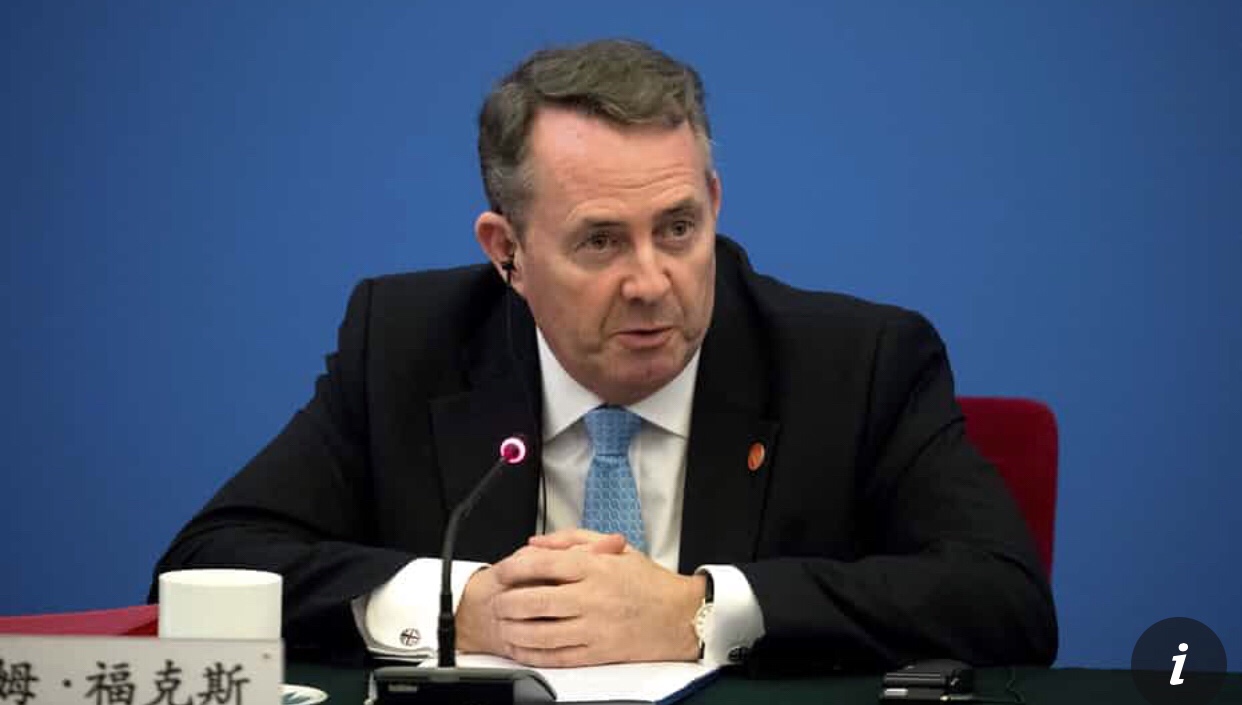The prospect of a “no-deal Brexit” appears to have grown after the European Union’s negotiator rejected last month central elements of Prime Minister Theresa May’s proposals for a new trade agreement.
Bank of England Governor Mark Carney said on Friday the possibility of Britain leaving the EU without striking any deal with Brussels was “uncomfortably high”. Trade minister Liam Fox has put the chances at 60-40.

May’s office repeated on Monday she believed Britain would negotiate a good agreement but that “no deal is better than a bad deal”.
The pound hit an 11-month low against the dollar on Monday with traders linking this partly to the possibility of no deal. It rose modestly on Tuesday.
Following are some questions and answers about what a no-deal Brexit might mean.
What will happen if Britain and the EU fail to get a deal?
Britain is a member of the World Trade Organization so tariffs and other terms governing its trade with the EU would be set under WTO rules.
EU tariffs are quite low, averaging about 5 percent, but they are higher for some important British exports including cars which would face a 10 percent tariff.
Exporters could face other barriers including complying with EU standards for goods such as food and electrical products. British exports might get stuck at the EU border.
Many British services firms, especially in the giant financial industry, would probably face more restrictions on doing business in the bloc than under May’s preferred deal.
Under WTO rules Britain and the EU could not offer each other low tariffs, quick border checks, or close cooperation on services, unless they offered these to all WTO member states.
What’s the downside of a no-deal Brexit?
Most economists say the higher the barriers are to trade with the EU, the bigger the hit for Britain.
The National Institute for Economic and Social Research says a no-deal Brexit would cost each person in Britain 800 pounds a year more than the effect of a “soft Brexit” under which Britain had ties to the EU similar to Norway’s. May’s plan would cost 500 pounds per person a year more than a soft Brexit.
The impact on Britain’s economy could be bigger still if business investment falls, aggravating slow productivity growth, or a fall in migration causes labour shortages.
What’s the upside to a no-deal Brexit?
Brexit supporters argue that WTO rules would help Britain’s economy by making it easier for London to strike its own trade deals with faster-growing countries and regions beyond Europe.
However, this would take years and Britain on its own might struggle to secure favourable terms from the likes of the United States and China.
Ruth Lea, a pro-Brexit economist, said the concerns about border delays were overblown, because countries outside the EU typically declare their exports online to speed their passage.
Brexit backers also say Britain could save its estimated EU divorce bill of around 39 billion pounds and spend this on public services instead.
Will a no-deal Brexit mean chaos?
With less than eight months until Britain leaves the EU, time is short to negotiate an agreement or prepare both sides for the possibility of no deal.
Any disorderly Brexit risks delays at borders as officials struggle with a sudden introduction of new customs rules.
Britain’s government is drawing up plans to stockpile medicines and blood products before a possible no-deal Brexit.
In the worst-case scenario, Britain would fall out of EU arrangements such as the U.S.-EU aviation Open Skies agreement, possibly causing transport chaos. Financial derivatives trading would face legal uncertainty.
EU citizens in Britain and British citizens in the EU would risk losing residency and other rights.
Given the potential for disruption, the EU might offer to extend the Brexit negotiation period if there were some prospect of a deal, Malcolm Barr, a JP Morgan economist, said.
“The EU knows that a no-deal Brexit would hurt all involved and would be an enormously complex problem to manage,” he said.
Link to article: Reuters: No-Deal Brexit
Source: Reuters
UK appears set to crash out of EU due to Brussels ‘intransigence’, says cabinet minister.
The UK appears set to crash out of the EU without a Brexit deal due to the “intransigence” of the Brussels machine, Liam Fox has claimed.
The international trade secretary put the chances of a no-deal Brexit at “60-40” despite both sides saying they wanted to reach an agreement on the terms of the UK’s departure from the bloc in March 2019.

The prominent Brexiter said he believed the risk of a no-deal scenario had increased, pinning the blame on the European commission and Brussels’ chief negotiator, Michel Barnier.
“I think the intransigence of the commission is pushing us towards no deal,” he told the Sunday Times. “We have set out the basis in which a deal can happen but if the EU decides that the theological obsession of the unelected is to take priority over the economic wellbeing of the people of Europe then it’s a bureaucrats’ Brexit, not a people’s Brexit – then there is only going to be one outcome.”

He said Barnier had dismissed the UK’s proposals in the Chequers plan thrashed out by Theresa May and the cabinet because “we have never done it before”.
The government has admitted its proposals are unprecedented, but Fox said Barnier’s response “makes the chance of no deal greater”.
The prime minister held talks with the French president, Emmanuel Macron, on Friday, cutting short her holiday to visit his summer retreat.
Cabinet ministers including the foreign secretary, Jeremy Hunt, and the Brexit secretary, Dominic Raab, have also engaged in diplomatic activity in Europe in recent days as the government seeks to deal directly with individual governments in an effort to keep the Chequers plan alive.
In a sign that member states are being warned of the consequences of the failure to find a deal, Fox said: “It’s up to the EU27 to determine whether they want the EU commission’s ideological purity to be maintained at the expense of their real economies.”
Meanwhile, the former cabinet minister Priti Patel said May must ditch the Chequers plan, which would result in the introduction of a “common rule book” for goods with the EU, in effect tying the UK to terms set by Brussels.
Writing in the Telegraph, she said it did not meet the result of the referendum and would “leave us half-in and half-out, still bound to EU regulations and constraints”.
Calling for a looser free trade deal with the EU she said the change would take “political courage, the kind of courage that appears to have been lacking over the past two years”.
The Labour former cabinet minister David Blunkett used a Sunday Telegraph article to reject claims that people who voted to leave over immigration concerns were “racist” and said the result would be the same if there was another referendum.
He said people believed the political system did not reflect their concerns following the impact of the financial crash and austerity, in many places hitting communities struggling to cope with the aftermath of deindustrialisation.
“To understand this, and why, if there were to be a second referendum now, I believe that the majority would still vote to leave, is critical if we are to get our democratic system back on track,” he said.
Source: The Guardian
Travelling can improve your career and your life. For women (- and men). As Freda Liu says. Don’t miss her posts here on LinkedIn BTW. They are always interesting.

This time a reference to the article by Katie Tatham here below. And I agree – it can.
It is all about learning. Life is about learning. And the more you travel, the more you learn.

Article:
What sets apart a great employee, from an average employee? Here’s why we think women who travel make the best employees…
Today, post-secondary education is very common, and many millennials look for work right after graduation. So what sets apart a great employee, from the others? One thing that is almost guaranteed: travel. This applies to everyone, but even more so, for women. Women who travel make better employees because, these women bring valuable skills they gained while traveling, to the workplace.
Here’s why women who travel make the best employees:
They’re the best problem solvers.
Women who travel, especially alone, develop the ability to solve any problem they encounter. When in a country where you don’t speak the language, navigating can be intimidating, but it’s something travellers are used to. Trains are closed for the day? They’ll find a bus. Arriving in a city late at night? They’ll research the quickest way to reach their accommodation safely. They’ve come to realize any problem can be solved with some quick thinking, and they’ll bring this to your team.
They’re independent and confident.
It takes a woman with these qualities to leave their comfort zone, and once they go, these traits strengthen. There is nothing more empowering than navigating through a country on your own, knowing you can take on whatever comes your way. When they’re back in the office, they have the confidence to take on tasks with little direction, self-motivate, and self-start, all extremely valuable qualities in an employee.
They’re good with people.
Part of traveling is meeting people, whether it’s locals or fellow travellers, and women who travel develop excellent interpersonal skills. When women first start travelling alone, it can be very intimidating to talk to people they don’t know. But it quickly becomes natural, and employers will likely notice female travellers ease quickly into the interview process, because talking to someone new is common for them. This translates into their work, making them good communicators and a great team member.
They’re eager to learn.
Travellers are curious about the world, and looking to gain knowledge of a culture other than their own. This open-mindedness allows them to absorb new information, and search for new ways to learn whenever they can. These women never want to be bored, and are always looking to be engaged. When they’re on your team, you can count on them to look for a different perspective and a challenge.
Women who travel make excellent employees, who are ready to rise to a challenge and self-manage. Like all millennials, female travellers are looking for flexibilty in the workplace, so employers need to work to retain them. Hiring quality employees who have gained these valuable skills will create a strong, dynamic team that can work together to drive your organization forward.
Source: Thrive Global. Article by Katie Tatham. Recommendation by Freda Liu.






You must be logged in to post a comment.